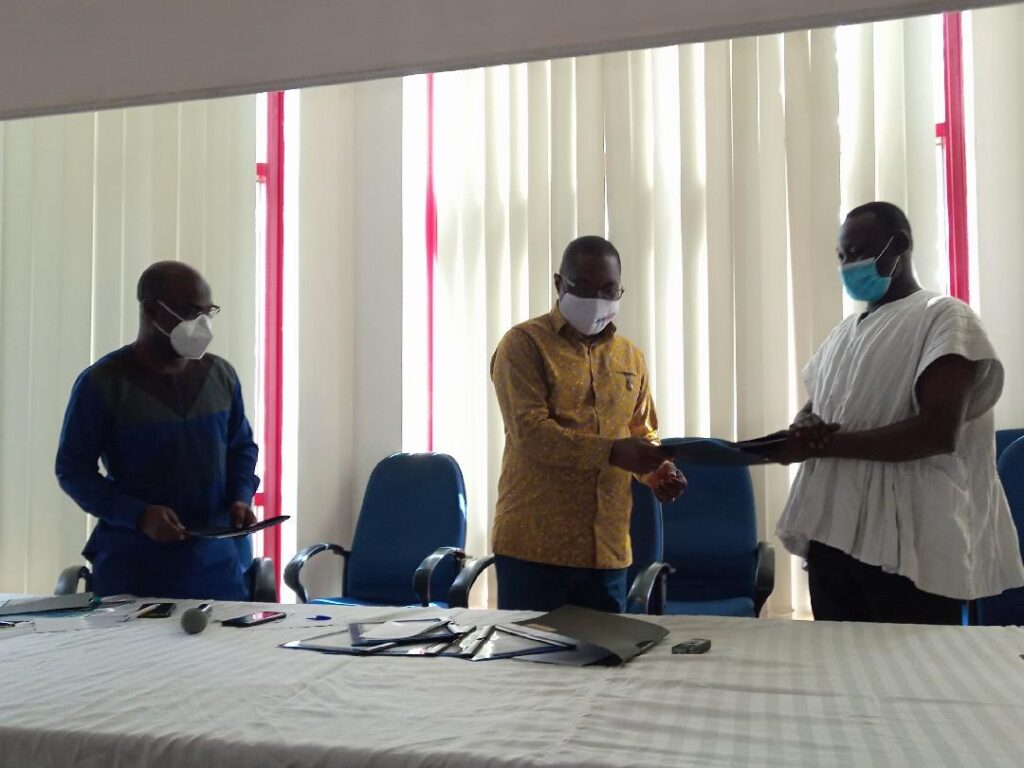The Ghana-India Kofi Annan Centre of Excellence in ICT (AITI-KACE) in collaboration with the Ghana Investment Fund For Electronic Communications (GIFEC), has launched the maiden educational Youth Virtual Labs project.

The objective of the project is to design, develop and launch a virtual training platform to build the economic resilience and capacity of youth in digital skills to survive current and future economic turbulence.
It seeks to expose young Ghanaians to opportunities in ICT and develop skills that enable them to compete globally and also contribute to national development.
The pilot virtual laboratory project would be implemented in three Senior High Schools (SHSs), one technical university, two colleges of education, and two Community Information Centres (CIC).
The beneficiary institutions include Sunyani Technical University, Bechem St Joseph’s College of Education, Bimbilla College of Education, Jema SHS, Asankragwa SHS and Danquah Memorial CIC.
The memorandum of understanding (MoU) for the Youth Virtual Labs Project, was signed in Accra, between Mr Kwasi Adu Gyan, the Director-General, AITI-KACE and Alhaji Yahaya Zakaria Osman, the Director of Operations, GIFEC.
While Dr Ibrahim James Gurindow, the Principal of the Bimbilla College of Education, initialled for the beneficiary institutions.
Mr Adu Gyan said by the signing of the MoU, AITI-KACE and GIFEC in partnership with the beneficiary institutions had agreed to use ICT as a tool to bridge the gap that had widen in educational institutions and had the potential to leave some students behind.
He said the COVID-19 pandemic had highlighted the increasingly widening gap between the haves and have-nots in both the educational and economic sectors of the country.
He said despite the disruptions the pandemic comes with, technology came in handy to curb the situation through the use of innovation to accomplish essential activities such as remote teaching and learning.
He noted that however, not all students had been in the position or had the opportunity to benefit from technology and its advantages during the period of uncertainty.
“Many young people from less privileged backgrounds have been hindered from meaningfully pursuing an education in which the constitution has given them the right to,” he said.
“This is due to some underlining conditions such as inadequate school or community infrastructure, lack of computer equipment and resources, and internet affordability.”
Mr Adu Gyan said AITI-KACE recently rolled out over 500 online and facilitator-led virtual courses covering several disciplines for students and workers since the outbreak of the COVID-19 pandemic.
“It is our fervent hope that beneficiaries of the Virtual Labs initiative can also take advantage of this learning opportunity free of charge,” he stated.
Mr Abraham Kofi Asante, the Administrator, GIFEC, in a speech read on his behalf said the new partnership would equip the less privileged schools in Ghana’s breadbasket areas with digital skills to acquire knowledge, build resilience and effectively participate in today’s digital age.
He said the intervention was in line with the United Nation’s global Sustainable Development Goals (SDGs), Ghana’s digital transformation agenda and the Ghana Beyond Aid programme.
“It is equally in tandem with various policies including the Ghana ICT for Accelerated Development (ICT4AD) and the National Policy for Science, Technology and Innovation,” he said.
Mr Asante said GIFEC would be responsible for the provision of internet service and project devices, including computers, printers, scanners, and internet modems.
AITI-KACE would provide digital television, develop the virtual learning platform, provide content, training and technical support, whilst partner institutions would prepare and provide a furnished room suitable for the purpose.
Dr Gurindow on behalf of the beneficiary institutions said they would do their best to ensure the successful implantation of the project.
GNA



